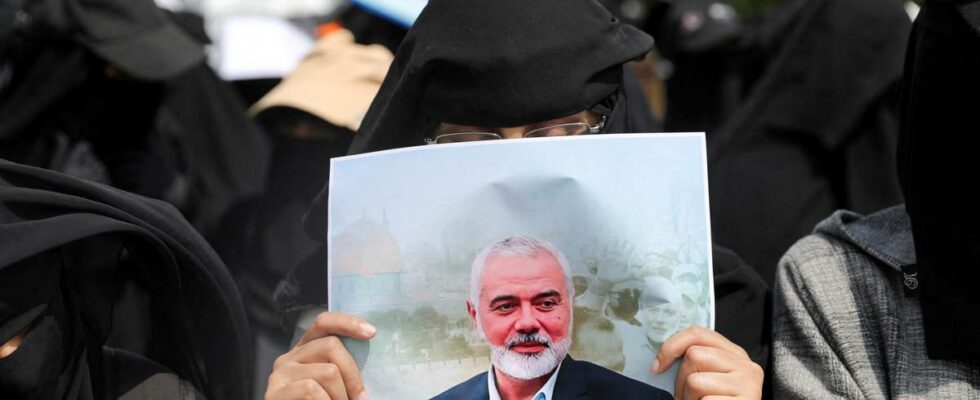The world held its breath. And continued to hold his breath. Now many are wondering where Iran’s announced revenge attack on Israel went. It has been almost a month since Hamas political leader Ismail Haniyeh was killed while visiting the Iranian capital. The Israeli authorities have not officially claimed responsibility, but Iran and Hamas believe they are behind it. In several countries there have been demonstrations against the murder of Ismail Haniyeh. Here in Beirut, Lebanon on August 2nd. Photo: Emilie Madi / Reuters – We consider it a duty to avenge him, said the country’s supreme leader Ayatollah Ali Khamenei shortly after the attack. But so far nothing has happened. news has spoken to three experts about why that might be, and what kind of answer you can expect – if it comes at all. – Risks losing regardless Jo Jakobsen is researching international security at NTNU. He believes that the murder of Haniyeh has given Iran’s leaders “a headache”. Jo Jakobsen is professor at the Department of Sociology and Political Science, NTNU. On the one hand, they have promised to fight back. On the other hand, they lack the intelligence network needed to carry out a similar counterattack, he tells news. – Iran risks losing no matter what it does, or doesn’t do. So I think we can expect, based on the indications from Iran and Hezbollah, who have also lost a military leader, that nothing will happen now. Jakobsen believes that Israel is stronger militarily than Iran, and has also shown a willingness to do greater damage. – A harsh response will increase the likelihood of a major war, for which Iran is not prepared. Israel will have the best cards in its hand if there is a major war. Khamenei’s harsh rhetoric will probably not be followed up with corresponding action, Jakobsen believes. Photo: Office of the Iranian Supreme Leader / Reuters Jakobsen believes that Iran and the Iran-backed Hezbollah militia are actively trying to avoid an escalation, despite the ongoing fighting. – Hezbollah has 100,000 rockets that can reach all of Israel, but they do not use them, because Israel’s response would probably be an invasion of Lebanon. Fierce fighting at the weekend Israel has admitted to being behind the air attack that killed one of Hezbollah’s leaders, Fuad Shukr, in Beirut, Lebanon. This happened the day before the murder of Haniyeh. Over the weekend, Israel bombed Hezbollah positions in southern Lebanon, while Hezbollah fired hundreds of rockets and drones at Israel. This is considered a reaction to the Shukr murder. Red skies over Lebanon this weekend. Israel attacked targets in Lebanon on Sunday night in what it called self-defense against planned attacks by Hezbollah. Photo: Aziz Taher / Reuters But when the dust settled, both sides declared victory and signaled that the fighting was over for now. Waage is a professor at the University of Oslo, and a senior researcher at the Institute for Peace Research (Prio). Photo: Eskil Wie Furunes / news – There is a large crowd of people both in Iran and in the Middle East who are getting angrier every day the war on the Gaza Strip continues, and want someone to settle with Israel. That’s what Hilde Henriksen Waage, who researches the conflict in the Middle East, says. – What we see is that Hezbollah and Iran are under pressure to do something, but are still showing great restraint. – Someone who is talking behind the scenes Iran’s decision has a lot to do with the United States, says Middle East historian Eirik Kvindesland. The United States is Israel’s most important ally, and constantly puts pressure on the country to establish a ceasefire. Kvindesland is affiliated with the University of Oxford and researches, among other things, the Israel-Palestine conflict and Iran. Photo: University of Oxford In mid-August, Iranian government sources also told the news agency Reuters that Iran would refrain from an attack if a cease-fire agreement in Gaza came into place. – It was very well coordinated with the round of ceasefire negotiations that took place right then, says Kvindesland. He adds that this was also in the interests of the Americans. – Here it may indicate that there are some people talking together behind the scenes and trying to pull in the same direction. The devastation in Gaza is enormous, and more than 40,000 Palestinians have been killed in Israeli attacks since the war began last year. Photo: OMAR AL-QATTAA / AFP Pointing to the US and the nuclear agreement In addition, Kvindesland believes that Iran wants to get a new nuclear agreement in place. The old agreement collapsed when the US withdrew from it in 2018 and imposed sanctions on Iran. When Ismail Haniyeh was killed, he was in Tehran to attend the inauguration of the country’s new president, Masoud Pezeshkian. Pezeshkian is called both moderate and reform-friendly, although it is debated to what extent this is true. Iran’s newly appointed President Masoud Pezeshkian spoke in the National Assembly on 21 August. Pezeshkian is called relatively moderate and reform-friendly. Photo: Vahid Salemi / AP There are many indications that Iran’s supreme leader, Ayatollah Khamenei, wants more diplomatic dialogue with the West, according to Kvindesland. – If Iran had carried out a major attack on Israel now, the whole diplomatic agenda there would go out the window. – I think part of Iran’s point is to keep the door open for an attack, but not necessarily carry it out. This playing card is the strongest, he believes, as long as it is not used. Listen to the radio broadcast from news’s foreign editorial office: Published 29/08/2024, at 05.44
ttn-69
That is why Iran has not taken revenge on Israel after the murder of a top Hamas leader in Tehran – news Urix – Foreign news and documentaries

